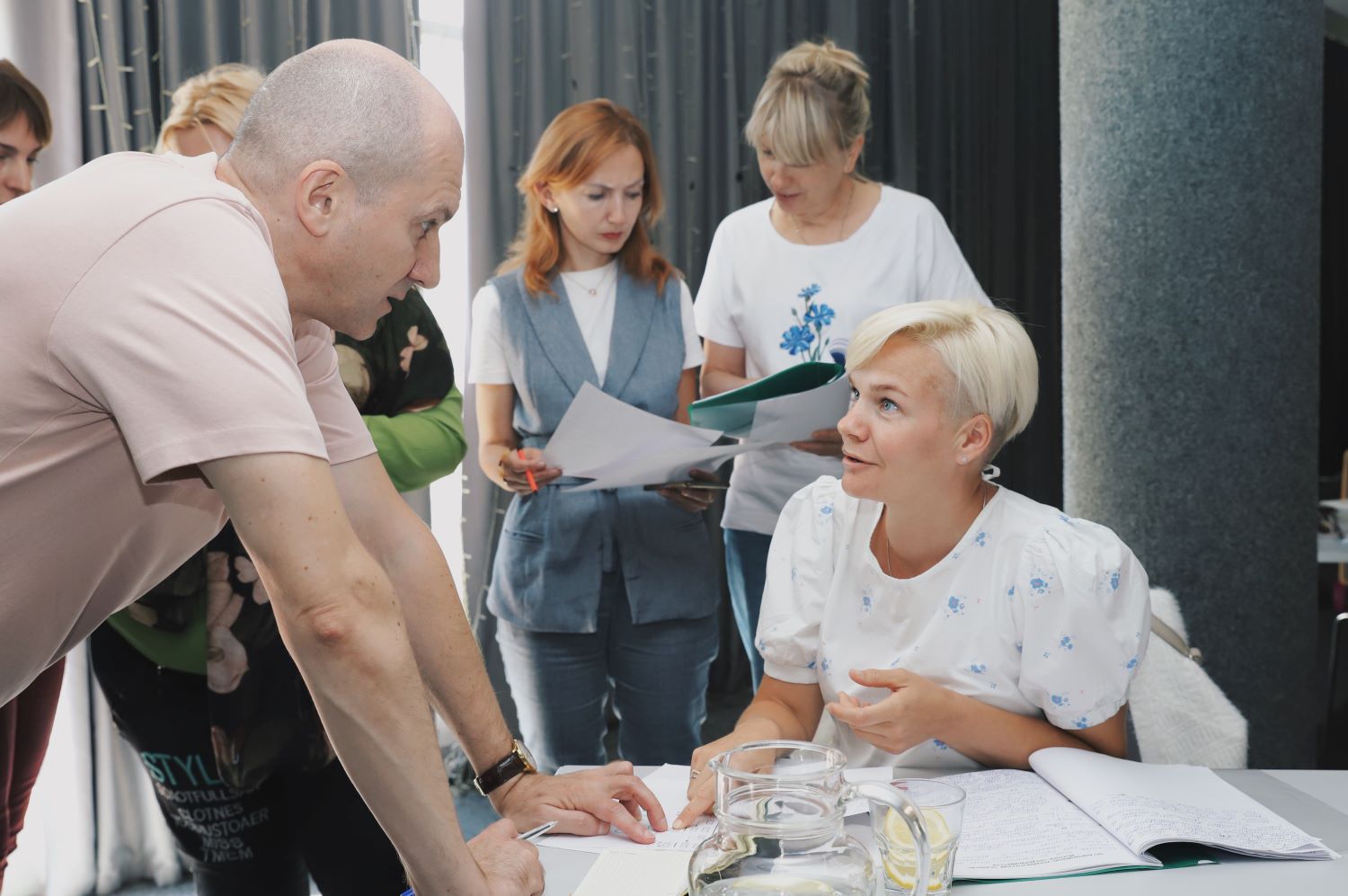With over US$ 98 million mobilized since 2021 through collaboration with local, national, and international partners, UNDP has introduced innovative solutions that not only benefit local communities but also prioritize environmental protection and support climate action.
2021-2024: Charting the Progress
November 25, 2024

As the UNDP’s 2021-2025 country programme nears completion, its transformative impact is evident across key strategic areas of the agency’s work in the country: green economic growth, climate action, digitalization, and social inclusion.
Driving Green and Inclusive Economic Growth
In advancing green and inclusive economic development, UNDP ensures that economic progress does not come at the expense of environmental integrity and social equity.
UNDP's work in green economic growth included innovative measures in carbon trade mechanisms and environmental policy. One of UNDP's standout achievements is the design of a National Strategy for Circular Economy, setting Belarus on a path toward resource efficiency and waste reduction through 2035.
To strengthen the country’s climate resilience, digital tools were developed to forecast CO2 emissions and offer detailed long-term projections across key economic sectors by 2050.

UNDP implemented nature-based solutions, engaging communities and fostering sustainable tourism.
In ecotourism, four new clusters were created to support community-led, sustainable tourism in protected areas. These clusters created new tourism products and services, attracting 16,000 eco-tourists in 2024 alone.
Corporate responsibility efforts saw private sector and state-owned enterprises adopt Environmental, Social, and Governance (ESG) standards, encouraging more sustainable business practices aligned with the SDGs.
Empowering Entrepreneurs in Local Communities
Over the past three years, UNDP has focused on fostering entrepreneurship and creating economic opportunities in the regions.

Through local income-generation projects, UNDP facilitated access to finance and created an environment where small and medium-sized businesses can thrive.
Training programs have equipped 20,000 participants with essential entrepreneurial skills, allowing them to innovate and start new businesses.

Employment-generation projects have supported over 68,000 people, with women representing 56% of the beneficiaries.
Initiatives supported by UNDP have led to the launch of nearly 300 new products and the creation of more than 600 jobs nationwide. Microfinancing services have supported 150 small and medium-sized enterprises (SMEs), driving business growth and resilience.
Accelerating Digital Transformation
Digitalization has emerged as a key focus area for UNDP. A one-stop online platform now connects businesses with 150 support centers and incubators, offering 20 digital tools designed to streamline business processes and improve access to resources for entrepreneurs and startups.

A single video shared on social media increased the number of Mila Malaya’s page visits 70 times. With consistent content publication, her profile's reach surged by 2.6 times in just one month.
This digital empowerment extends to social entrepreneurs in Chernobyl-affected areas, equipping them with e-commerce tools to enter new markets while helping destigmatize these communities and foster economic renewal.
A new public-private partnership model and a digital platform for government-business councils are fostering investment and collaboration, promoting inclusive and data-driven economic strategies.
Fostering Innovative Financing and Public-Private Collaboration
To bridge development financing gaps, UNDP has worked on the Integrated National Financing Framework (INFF) for SDGs. A new project-based financing model and an innovative project-selection methodology will spur investments and lay the ground for the national innovation ecosystem.
Focusing on Youth, Education, and Workforce Development
In response to a shifting labor market, UNDP has aligned vocational education with future job demands.

Two years into her studies, Dasha Valevich, a second-year student, has discovered the perks of working in a demanding world of engineering.
Targeted skills programs are preparing young people for careers in agriculture, engineering, and construction, ensuring a workforce is equipped to meet future challenges.
Advancing Climate Action and Biodiversity Conservation
UNDP has been instrumental in supporting Belarus’ climate goals. The agency contributed to the development of the Nationally Determined Contributions (NDCs), targeting a 38% reduction in greenhouse gas emissions, and the development of the Long-Term Low-Emissions Strategy. These policy frameworks are designed to guide Belarus towards a sustainable, low-carbon future while building resilience against the impacts of climate change.

Prioritizing climate education from an early age, UNDP helped equip young generations with essential green knowledge and skills, starting with children as young as five.
Educational initiatives on climate change have reached over 1,000 teachers and students through an updated Climate Box toolkit.

By alleviating the burden on local healthcare systems and improving access to treatment, mobile hospitals not only save lives but also enhance the overall effectiveness of emergency response efforts in the face of increasing climate challenges.
While addressing climate-related disasters, emergency preparedness was bolstered with the deployment of a mobile hospital and training for first responders, enhancing the country’s resilience to climate-related disasters.
UNDP helped Belarus to meet international environmental commitments, including the Ramsar and Stockholm Conventions, the Kunming-Montreal Global Biodiversity Framework. From 2021 to 2024, biodiversity measures covered 756,000 hectares, with 100,000 hectares designated as new protected areas.

The safe disposal of 2,707 tons of hazardous waste has significantly reduced environmental health risks.
Conservation and sustainable land use initiatives expanded under the National Biodiversity Finance Plan, which identified a $4.5 billion funding requirement by 2050.
Strengthening Healthcare System and Promoting Social Inclusion
In response to the COVID-19 pandemic, UNDP focused on enhancing healthcare system resilience, emphasizing support for medical professionals, especially women. The introduction of a National Multidimensional Poverty Index brings a new perspective to addressing the issues of economic and social development in Belarus.

To foster social inclusion, UNDP improved the livelihoods and resilience of vulnerable populations, including refugees and people living with HIV. The organization also promoted women’s participation in the labor market and facilitated the economic integration of Ukrainian refugees into Belarusian communities.
To advance gender equality, UNDP embedded a gender analysis mechanism in the Regulatory Impact Assessment process. This ensured that laws affecting entrepreneurship address the specific challenges faced by women, creating a more inclusive business environment.
Looking Forward
In the upcoming country programme for 2026-2030, UNDP will focus on several key areas to further support Belarus on its path to development. Together with multiple stakeholders the agency will continue to work on bridging the digital divide, strengthening vocational education and training, and accelerating climate action. Additionally, UNDP and the partners will prioritize the health and well-being of people, particularly vulnerable groups and older population.

 Locations
Locations


